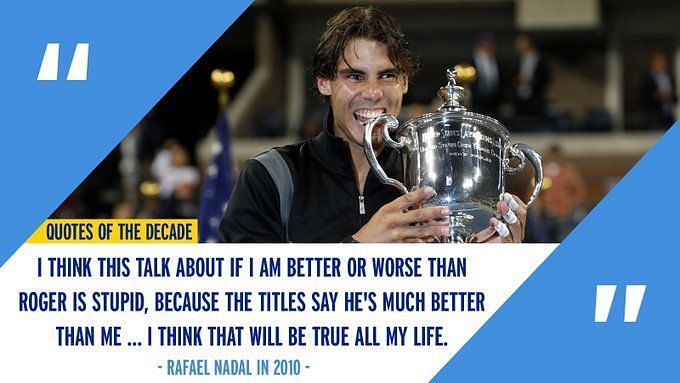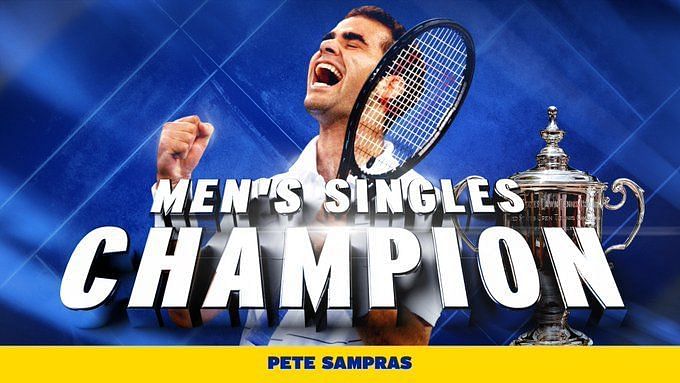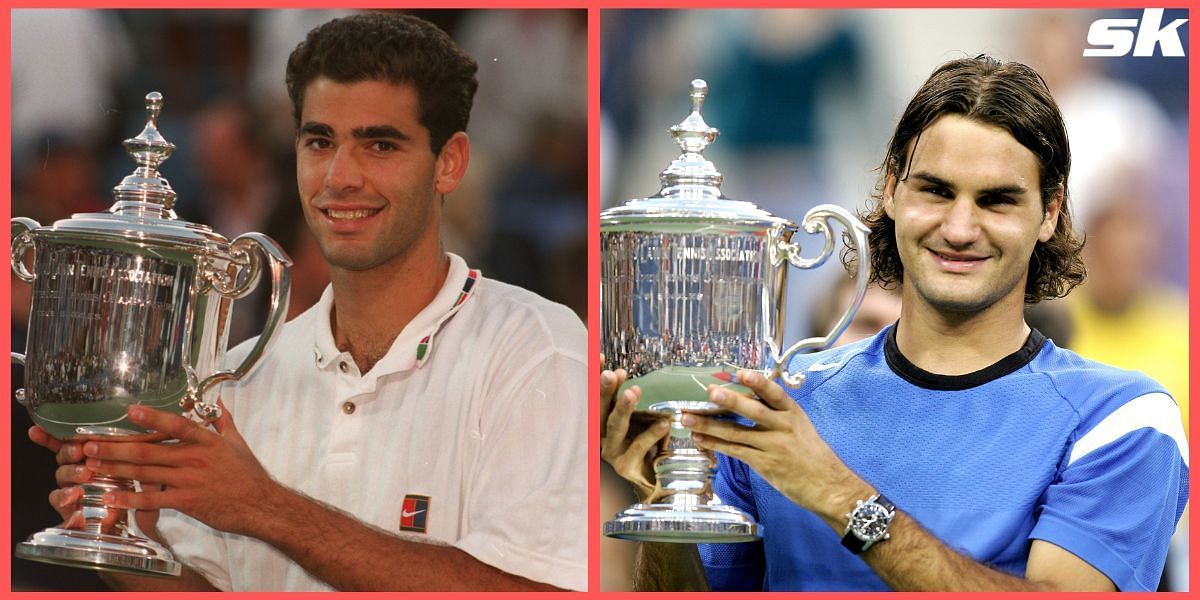
Ranking the top 10 US Open men's singles champions of the Open era ft. Pete Sampras, Roger Federer
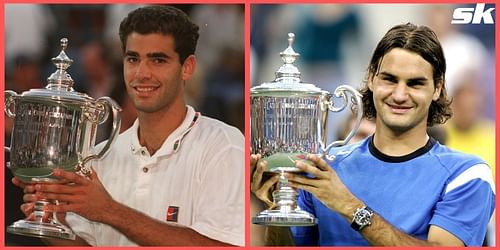
The US Open has seen some great champions emerge over the years, with Arthur Ashe winning a historic first Open-era title in 1968 and massively successful players like Roger Federer, Rafael Nadal, Pete Sampras and Jimmy Connors winning multiple titles.
While a few great players have dominated the event in the past, the final Grand Slam of the year has also thrown up surprise winners like Dominic Thiem, who triumphed in 2020 after a few notable withdrawals and a disqualification opened up the field.
Defending champion Daniil Medvedev stopped Novak Djokovic from achieving a calendar Grand Slam last year even as the upcoming edition too begins without a clear favorite.
Let's take a look at 10 of the greatest US Open champions from the Open era.
#10. Patrick Rafter
The two-time Wimbledon finalist has a couple of Grand Slam titles to his name - having won at Flushing Meadows in 1997 and 1998.
In 1997, Rafter became the first Australian to win the US Open title since John Newcombe in 1973 by getting past Andre Agassi in the fourth round before accounting for Michael Chang and Greg Rusedski in the semifinals and final, respectively.
The Australian player went on to win a second successive US Open title, silencing those who believed that the first was a flash in the pan.
Rafter caused a huge upset by outlasting Pete Sampras in a five-setter in the semifinals before trouncing fellow-Australian Mark Philippousis in the 1998 final.
#9. Andre Agassi
The flamboyant American became the first-ever unseeded player to win the US Open when he got past Michael Stich in the finals in 1994.
Coached by Brad Gilbert, the 1992 Wimbledon champion overcame a strong challenge from compatriot Michael Chang in the fourth round before making short work of Austrian Thomas Muster in the quarterfinals.
Todd Martin was a bit more of a challenge in the semifinals, but the in-form Agassi cruised past Stitch in straight sets in the finals.
By the time Agassi won the US Open for a second time in 1999, he had already added the Australian Open (1995) and French Open (1999) titles to his kitty and ended the year as World No. 1.
#8. Stefan Edberg
Stefan Edberg reigned supreme at the Australian Open in 1985 and 1987 before beating Boris Becker twice to clinch the Wimbledon titles in 1988 and 1990 but reached a US Open final for the first time only in 1991.
Edberg overcame Ivan Lendl in straight sets in the semifinals before thrashing Jim Courier in the final with a 6-2, 6-4, 6-0 scoreline.
The stylish Swede had to work a lot harder to defend his title in 1992 where he got past Ivan Lendl in a marathon five-setter in the quarterfinals, with the decider coming down to a tiebreak.
Michael Chang then stretched Edberg to five sets in the semifinals before bowing out, with the Swede setting up a title clash with Pete Sampras.
The 1990 US Open champion took the first set but couldn't carry the momentum forward as Edberg won a second straight US Open final in 1992 before retiring from the game four years later.
#7. Ivan Lendl
After losing three consecutive US Open finals between 1982 and 1984 - two against Jimmy Connors and one against John McEnroe - Ivan Lendl registered a hat-trick of wins that began when he tilted the scales against McEnroe in the 1985 final.
Stoic and unemotional as always, Lendl got the better of Connors as well in the semifinals in 1985 before defeating McEnroe in straight sets.
Lendl sailed past Stefan Edberg in the semifinals before trouncing Miloslav Mecir of Slovakia in the 1986 final.
The Czech player faced Connors again in the semifinals of the US Open in 1987 before beating Mats Wilander for his third US open title.
Ivan Lendl featured in eight consecutive US Open finals, going on to lose to Wilander and Boris Becker in 1988 and 1989.
#6. John McEnroe
The fiery American beat Vital Gerulitis to win his first US Open title in 1979 before going on to overcome Bjorn Borg in two successive finals in 1980 and 1981.
McEnroe beat Ivan Lendl to win his third US Open title in 1984 but failed to beat his Czech rival in the 1985 final.
McEnroe is one of three players, along with Lendl and Federer to have won three back-to-back titles at Flushing Meadows and reserved his best for the final Grand Slam of the year during the course of an eventful career.
#5. Novak Djokovic
Novak Djokovic failed to win the US Open title until 2011, despite having reached the finals in 2007 and 2010.
Roger Federer was in the midst of an astounding run at the US Open when he beat the Serb in the 2007 finals while Rafael Nadal registered his first title win and the career Grand Slam in New York when he beat Djokovic in the 2010 final.
It was the Serb's turn to end up on the winning side as he faced Nadal again in the finals a year later, but he was unable to defend his title going down to Andy Murray in the 2012 title round.
Djokovic lost to Nadal yet again in the 2013 final before beating Federer to reign supreme in 2015.
The Serb's waxing and waning fortunes in the finals of the US Open continued after a loss to Stan Wawrinka in 2016 before getting the better of Juan Martin del Potro to win his third title in 2018.
The 2021 runner-up is poised to miss this year's tournament on account of his vaccination status as things currently stand.
#4. Rafael Nadal
Nadal won his first two US Open titles, beating arch-rival Novak Djokovic in the 2010 and 2013 finals.
Defending champion Stan Wawrinka and defending finalist Djokovic both withdrew from the 2017 edition of the tournament that witnessed Nadal lifting the trophy after overcoming Kevin Anderson in straight sets in the final.
Daniil Medvedev failed to stop the Spaniard from winning his fourth US Open title in 2019 despite putting up a valiant fight even as spectators were treated to a five-set classic.
#3. Jimmy Connors
At age 39, Jimmy Connors reached the semifinals of the US Open in 1991 after having played 20 consecutive editions of the tournament in New York.
The American great won his first US Open title in 1974 by defeating Ken Rosewall and followed up the triumph with a couple more in 1976 and 1978 when he got past Bjorn Borg in both finals. Ivan Lendl lost to Connors in the finals of the 1982 and 1983 editions of the event.
Connors won the US Open title five times after having reached the final on seven occasions and competed against players from two very distinct generations, ranging from the likes of Ken Rosewall to Andre Agassi.
#2. Pete Sampras
Pete Sampras and Andre Agassi ushered in a new era for American tennis in the 1990s that began with Sampras defeating his compatriot to win the 1990 US Open title.
After losing to Stefan Edberg in the 1992 final, Sampras triumphed for a second time in 1993 when he defeated Cedric Pioline of France in the final.
Wins against Agassi and Michael Chang in the finals of 1995 and 1996 gave the Californian two successive wins before he bagged a fifth and last title in 2002 with a win over old rival Agassi yet again.
#1. Roger Federer
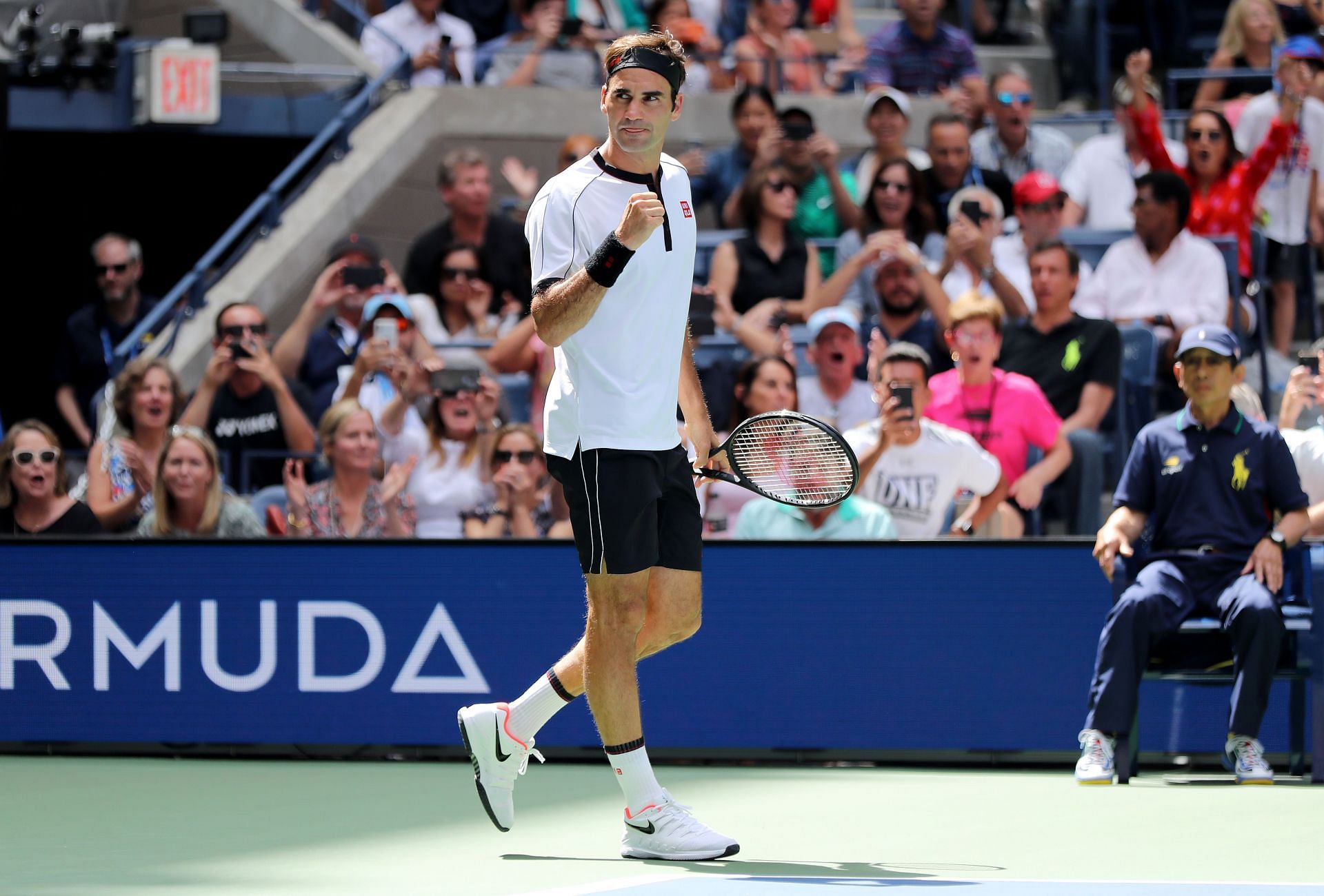
The Swiss maestro won five US Open titles on the trot between 2004 and 2008.
Lleyton Hewitt of Australia was bagelled in the first and third sets of the 2004 final, with Federer emerging victorious with a 6-0, 7-6, 6-0 margin. Roger Federer prevailed against Andre Agassi in the 2005 final in four sets for his sixth Slam title. Federer also got the better of Andy Roddick to win the tournament a year later.
Notwithstanding a couple of tiebreaks in the first and second sets, Roger Federer defeated Novak Djokovic in straight sets in 2007. It was Djokovic's first Major final and the Serb managed to get the better of Federer a few months later in the semifinals of the 2008 Australian Open. Federer also got the better of Andy Murray with ease in 2008 to win his fifth US Open title in a row.
Federer made it to the finals again in 2009 but went down to Juan Martin del Potro and lost to Djokovic in the 2015 final. His record of five successive title wins in a tournament that is notoriously difficult to dominate will remain one of the toughest achievements to better in the game of tennis.
